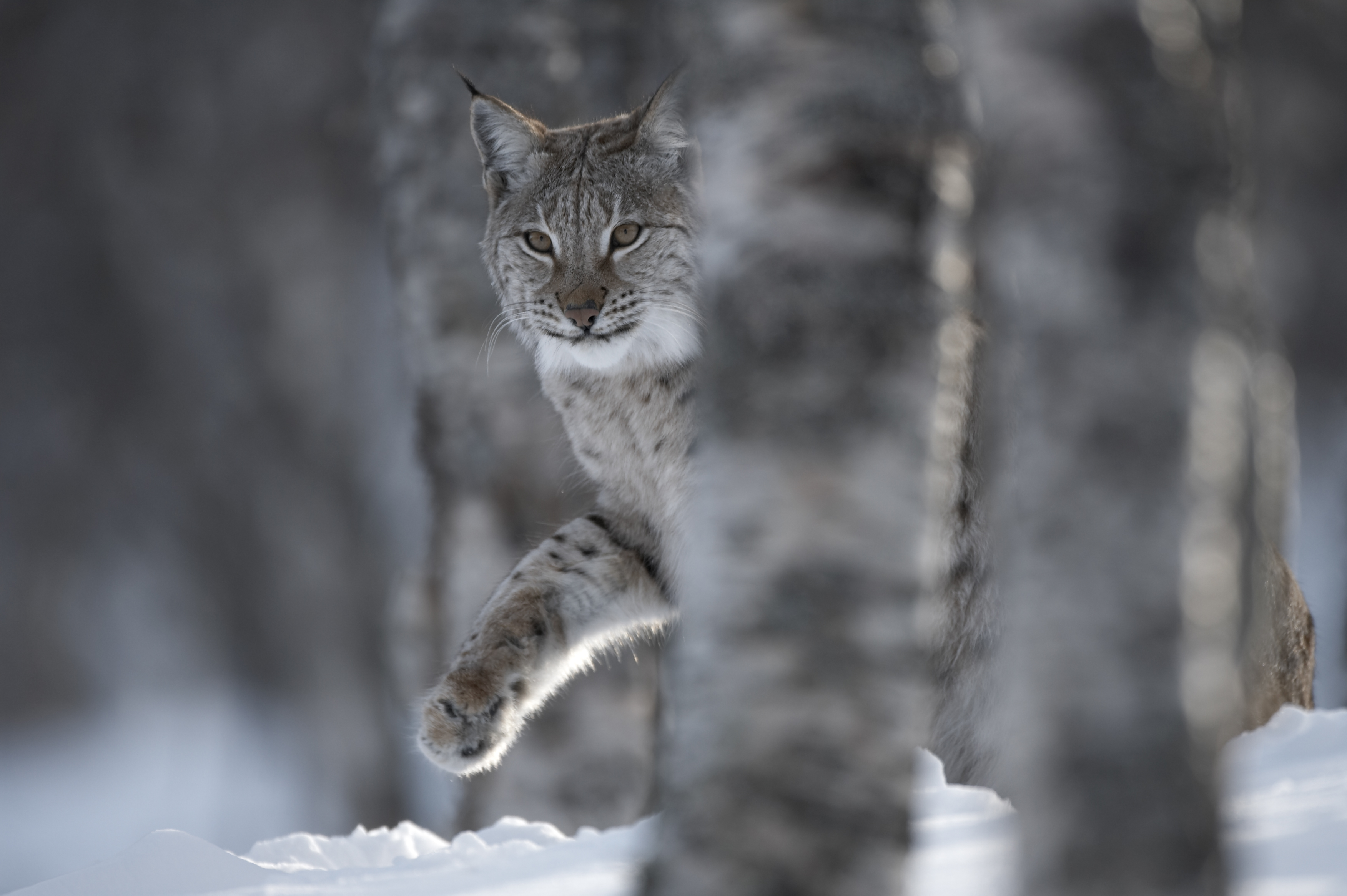Lynx to Scotland – broad support for further discussions, says study
‘Not now, but not never’ – cross-sector group needed to examine barriers to lynx return
There is sufficient appetite from a diverse cross-sector of rural stakeholders to examine whether potential barriers to a trial reintroduction of Eurasian lynx to Scotland can be overcome, says the first detailed study into the social feasibility of the species’ return.
The research, commissioned by the Lynx to Scotland project, spent a year consulting a wide range of national stakeholders and local communities in the Cairngorms National Park and Argyll. It was organised by charities SCOTLAND: The Big Picture, Trees for Life and Vincent Wildlife Trust.
Previous research suggests the Highlands has enough habitat – and roe deer, the animal’s preferred prey – to support a population of around 400 wild lynx. But the charities behind the study say a successful reintroduction is more dependent on people’s attitudes than the ecological science.
As part of the new study, over 100 interviews were held as well as several online webinars and four community events, with extensive contributions from a range of groups including farmers, gamekeepers, foresters, conservationists, landowners, tourism operators and rural communities.
Among the wide-ranging views, there was consensus for a participatory cross-stakeholder approach to further explore the benefits of and barriers to lynx reintroduction. The study recommends setting up a Lynx Action Group to build trust between stakeholders and address areas of disagreement over science and local knowledge, as well as the real and reasonable concerns of some stakeholders.
“When it comes to the return of the lynx, we’re in the realm of not yet – but not never. Positively, this new research shows there is sufficient appetite amongst different stakeholders to develop a more comprehensive understanding of this little-known species and the potential for its return to Scotland,” said Peter Cairns, Executive Director of SCOTLAND: The Big Picture.
“The overall willingness across different sectors to engage in constructive and thoughtful discussions is heartening and very welcome.”
The study showed that views about lynx reintroduction are far more diverse and complex than a simple ‘for’ and ‘against’. Different perspectives were identified, with some supporting reintroduction because of the environmental and economic benefits, some against, and others who do not think lynx should be reintroduced now but are open to discussing the future potential.
Rarely seen, lynx are solitary woodland hunters that shy away from humans. The species is expanding in range and numbers across Europe, with successful reintroductions bringing ecological and environmental benefits to various countries, many of which are more densely populated than Scotland, and in areas of farming, hunting, forestry and tourism.
Steve Micklewright, Trees for Life’s Chief Executive, said: “In weighing up the hows and whys of a trial lynx reintroduction, it’s important to consider different stakeholder interests and legitimate concerns. Properly assessing and listening to all views is key for the proposed return of an animal that has been absent from Scotland for a long time.”
The study assessed views around issues including suitable habitat and the quality of Scotland’s woodlands, the potential for cost-effectively reducing the grazing impacts of woodland deer, and implications for sheep and for species such as capercaillie and wildcats. Other issues discussed included lynx behaviour in Europe, and ways of managing reintroduced lynx.
In terms of barriers to any reintroduction, the overriding concern – including from a majority of farming stakeholders – was around the potential predation of sheep. There was consensus that exploring mitigations for this should be a priority.
“Overall, rather than sparking controversy, discussions around lynx reintroduction saw open debates which were passionate, robust and respectful, and contributed different views, knowledge and experiences,” said Jenny MacPherson, Science and Research Programme Manager at Vincent Wildlife Trust, which led the study.
Separate research carried out for the Scottish Rewilding Alliance in 2020 found that 52% of people in Scotland support lynx reintroduction, with 19% opposed.
Apex predators such as lynx are missing in the UK due to hunting and habitat loss. Lynx are known as a keystone species because they maintain balance and diversity in an ecosystem, and other species and the wider environment are affected by their absence.
The Lynx to Scotland study was carried out between March 2021 and February 2022. For more details, see scotlandbigpicture.com/lynx-to-scotland.
The project partners are SCOTLAND: The Big Picture (scotlandbigpicture.com), Trees for Life (treesforlife.org.uk) and Vincent Wildlife Trust (vwt.org.uk). The project is not associated with other initiatives to restore lynx to Britain.
/ Ends
Press release distributed by Pressat on behalf of Trees for Life, on Thursday 28 April, 2022. For more information subscribe and follow https://pressat.co.uk/
Lynx Wildlife Nature Highlands Conservation Environment Scotland Biodiversity Climate Charities & non-profits Environment & Nature Farming & Animals
You just read:
Lynx to Scotland – broad support for further discussions, says study
News from this source:


